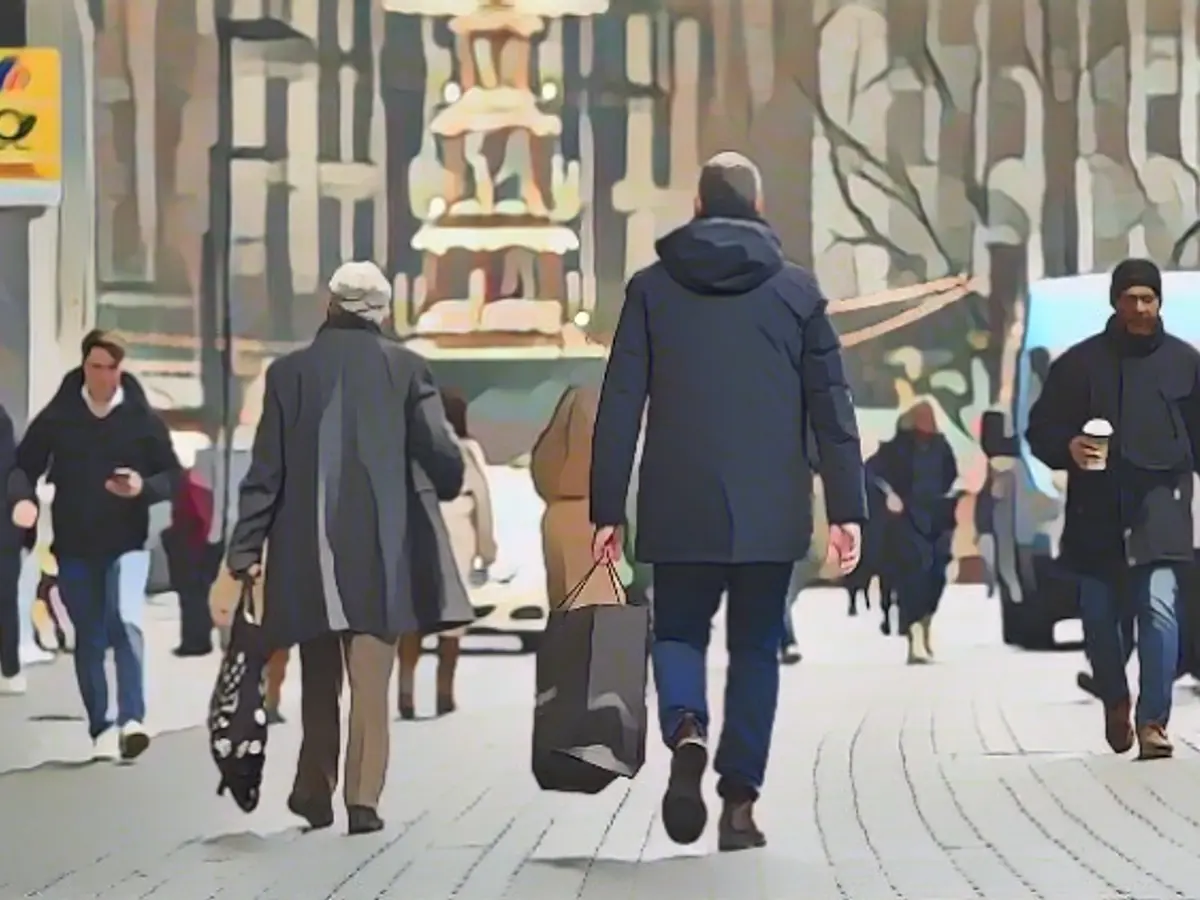Resurging in Optimism: Germans Embrace a Slightly Better Buying Mood
Breaking the monotony, Germans are once again showcasing a tad more optimistic shopping mindset. According to the findings of GfK and the Nuremberg Institute NIM's consumer climate study, both expectations regarding income and the propensity to make major purchases saw noticeable enhancements toward the end of the year.
In their January forecast, these institutes projected the consumer climate to be at -25.1 points, representing an increment of 2.5 points compared to the preceding month. Despite this improvement, it's worth noting that the consumer climate was comparably stable around +10 points before the onslaught of the coronavirus pandemic.
Concerns Persist: Expert Insights from NIM
As per NIM expert Rolf Bürkl, the question of whether the current improvement marks the commencement of a sustained recovery in consumer sentiment is still uncertain. Consumers remain anxious due to geopolitical crises, escalating food prices, and heated discussions about the federal budget, resulting in an incredibly low level of consumer confidence.
Income Expectations and Optimism Soar
The foundation for the slight improvement at the end of the year lies predominantly in income expectations. A count of 1/3 of respondents attributed such optimism to wage increases that had already occurred or were well underway.
Eased Economic Pessimism and Enhanced Propensity to Buy
Parallel to improved income expectations, the propensity to buy has also significantly increased. Simultaneously, economic pessimism has subsided slightly, as expectations for the economy have risen by 1.9 points compared to the previous month and 10 points compared to the same period last year.
An Uncertain Road to Recovery
Even though some high-income households have demonstrated a readiness to indulge in non-essential purchases, it's important to note that the resurging buying mood has yet to translate into substantial consumption. This is evident in the latest consumer climate study, which has set the consumer climate at -25.1 points for January.
Enrichment Insights
Even though consumer confidence is still incredibly low, there are various factors besides the flexibility in income expectations that contribute to the underlying caution in Germany. These include:
- High Energy costs: The spike in energy prices, triggered by Russia's invasion of Ukraine, has wreaked havoc on household budgets and negatively impacted spending habits.[1][2][5]
- Labor Market Unrest: Uncertainty and insecurity in the labor market, linked to the broader economic outlook, add to the consumer caution.[1]
- Economic Stagnation: Germany's economy has experienced stagnation since 2020, with minimal growth over the previous two years, which has led to pessimism regarding living standards and the overall economy.[2][5]
- Housing Crisis: The severe housing crisis, warped by skyrocketing interest rates, construction costs, and a housing shortage, has led to a scarcity of affordable housing. Millions of people live in overcrowded conditions while SMEs compete for housing prices in major cities, pushing them up.[2]
- Declining Government Confidence: Declining faith in the German government, with its public trust at a record low of 50%, has compounded this problem.[2]
- Supply Chain Disruptions: The ongoing disruptions in global supply chains due to the Ukraine war and the coronavirus pandemic have created persistent bottlenecks, pushing up prices and curtailing consumer spending.[3]
- Inflation: Although Germany's annual consumer price inflation dropped to 2.3% in January 2025, underlying inflation drivers such as energy costs and supply chain disruptions persist, affecting consumer confidence.[4]
These interconnected factors have established a fragile, cautious consumer environment in Germany, even with the slight improvement in buying mood after the pandemic.





